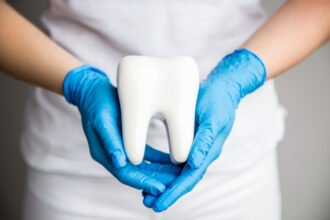Among men of all ages, testosterone is an important hormone for regulating health. Men over the age of 65 tend to develop health problems as their testosterone levels decline. According to a study by Peter Snyder of the division of Endocrinology at the University of Pennsylvania and David Kopperdahl of O.N. Diagnostics, low testosterone levels are correlated with low iron levels and bone density. Previous research has also shown that it can lead to decreased sex drive, low energy, muscle loss and depression. Fortunately, there are a number of ways that you can address the problems that cause declining testosterone levels. Here are some tips to consider.
Minimize sugar intake to lower your weight
According to a 2012 study, there is an inverse relationship between weight and testosterone. This explains why more middle-aged men are having testosterone problems while the rate of obesity and diabetes is surging. Fortunately, research has shown the problems can be reversed with weight loss. “Doctors should first encourage overweight men with low testosterone levels to try to lose weight through diet and exercise before resorting to testosterone therapy to raise their hormone levels,” said study co-author Frances Hayes, MD, professor at St. Vincent’s University Hospital, Dublin. Excessive sugar consumption is the biggest cause of the obesity epidemic. Men that limit their sugar intake to 25 grams a day will have an easier time managing their weight, which reduces the likelihood that they will develop testosterone problems.
Consider Taking Supplements
You may be able to raise your testosterone levels by making some simple changes to your diet or daily life. However, it may be difficult to fix these problems if you have multiple conflicting issues or have difficulty making these changes. In these situations, it may be a good idea to talk to your healthcare provider to learn more about therapy. They may make a major difference.
Improve your work-life balance
Stress is another major factor that leads to decreased testosterone. It is becoming a greater concern as people are expected to work longer hours. Since men are still the breadwinners in most households, the burden of increased hours tends to fall on them. If you were having problems with declining testosterone levels, you may need to take new steps to improve your work-life balance. At the very least, you should stop volunteering for overtime if you’re starting to feel burnt out. You may also want to request changes to your hours if your current schedule is interfering with your time with your family. More companies are trying to accommodate employees’ personal time by offering more flexible schedules these days, so it is a good idea to try to take advantage of them if necessary. Some stressors in your life are unavoidable, while others can be eliminated. Minimize your exposure to stress as much as possible.
Find out if you are deficient in important nutrients
A number of nutrients play an important role in regulating testosterone production. Zinc and vitamin D are two of the most important. It is a good idea to ask your doctor about testing your nutrient levels during your regular physical. They can usually easily identify deficiencies and recommend dietary changes or supplements to fix them. You need to take a close look at your diet and see if you are deficient in either of these nutrients. There is a good chance that you are. Approximately 45% of adults over 40 are not consuming enough zinc. Vitamin D deficiency is less common, but is still a problem for many people. One study found that 24.1% of young adults in Boston didn’t have enough vitamin D in their diet.










